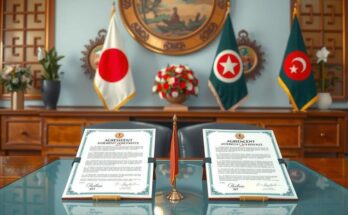South Sudan’s government has postponed elections to 2026, violating the 2018 peace agreement and intensifying existing divisions and violence. Political leaders have prioritized personal gain and power, leading to resource conflicts and economic stagnation, particularly as oil reserves decline. The fragmentation of armed groups has resulted in widespread violence, complicating the peace process’s ability to address local disputes effectively.
In September 2024, South Sudan’s government announced the postponement of elections until 2026, exacerbating the violations of the 2018 Revitalized Agreement on the Resolution of the Conflict in South Sudan (R-ARCSS). These actions have heightened the rifts within the nation and contributed to ongoing violence. Since the end of the civil war in 2018, various factions have prioritized political power and economic gain over national unity, leading to conflict over dwindling resources.
The government in Juba has consistently denied adequate funding to national institutions, undermining the prospects for a cohesive national military. Numerous state officials exploit the current instability, using their positions to support lavish lifestyles and extensive patronage systems. The ongoing plunder of Nilepet, the state-owned oil company, continues to fuel both the conflicts and individual wealth, leaving the nation in dire economic straits.
Violence has increasingly become pervasive throughout South Sudan, with armed groups splintering and acting independently. From January 2013 until the signing of R-ARCSS in September 2018, conflict events occurred in 718 distinct locations. By contrast, between September 2018 and January 2025, the number surged to 1,720 sites, highlighting the fragmented landscape of conflict. Therefore, the peace process appears ill-equipped to effectively address the numerous local disputes related to borders, resources, and political influence.
South Sudan, the world’s youngest nation, has faced profound challenges since gaining independence in 2011. The country endured a devastating civil war from 2013 to 2018, which was marked by intense rivalries among political and military leaders. The subsequent peace agreements have struggled to foster genuine reconciliation or rebuild trust among the diverse communities within South Sudan, resulting in unaddressed violence and instability. The management of resources, particularly oil, remains a contentious issue that further complicates the peace process.
In summary, the postponement of elections in South Sudan reflects a deeper crisis, highlighting the ongoing violations of the peace agreement and the lack of political will to foster unity. Continued violence, exacerbated by mismanagement of resources and personal interests of leaders, further undermines the peace process. Unless significant changes occur at the political level, local conflicts over resources and power will likely persist, impeding any pathway to lasting peace.
Original Source: reliefweb.int




